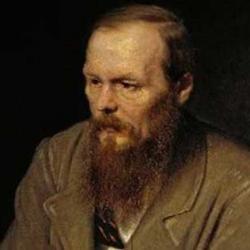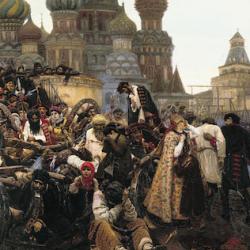In an essay on Dostoevsky and evil in Between Religion and Rationality, Joseph Frank observes that Dostoevsky frequently leads readers into moral horrors, but his “unflinching explorations of evil” don’t leave readers paralyzed. How does that work?
Frank traces Dostoevsky’s depiction of evil to his prison experience, recounted in Notes from the House of the Dead. Initially, his contact with evil was deeply unsettling, as his idealist views about human goodness were shattered. He emerged from his years in prison with a chastened but not a cynical view of human evil. He grew to sympathize with and even admire the convict-prisoners (210).
Frank finds in Dostoevsky’s story about the “Peasant Marey” the view that “Concealed in the human heart is also
the kindness and compassion of Marey; and this contains the possibility
of remorse and redemption” (211).
Frank rightly sees this as a theologically-rooted opinion: “It is . . . a law of (human) nature to strive to realize the ideal of Christ” (211). The struggle between this impulse and evil desires is the heart of Dostoevskyan psychology: “All of Dostoevsky’s
best works depict this struggle without flinching at portraying
evil; but its manifestations are, if not balanced, then certainly mitigated, by
the torments of conscience unleashed in the psyche of his main characters” (212).
Dostoevsky is able to depict horrors without losing sight of the possibility of redemption because he so vividly depicts the struggle of conscience. Frank points to “the masterly portrayal” of conscience in Ivan Karamazov gradual recognition and admission of his role in killing his father: “The gradual inner awareness
of his own culpability and his efforts to suppress it; the three almost somnambulistic
visits to Smerdyakov to seek reassurance; the marvelous black
comedy of the Devil’s hallucinatory visit (a product of Ivan’s own schizophrenic
psyche); his final collapse and mental breakdown—all this remains
unsurpassed as an image of moral conscience at work, a conscience for
whose injunctions, as the Devil rightly mocks, Ivan’s reason offers no justification
whatever” (214).














